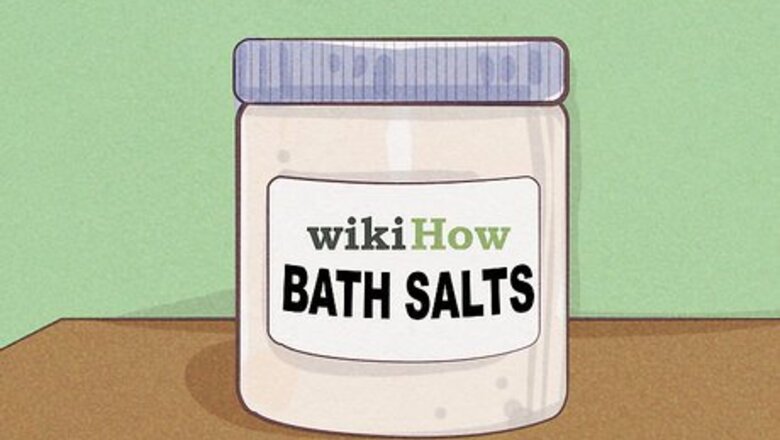
views
- Generally speaking, a full bathtub of water needs about 1/2 a cup of bath salts.
- But if you want a more concentrated bath salt experience, you can always try including another quarter of a cup.
- For a therapy bath, include 1-2 cups of epsom salts instead.
Adding Salts to Your Bath
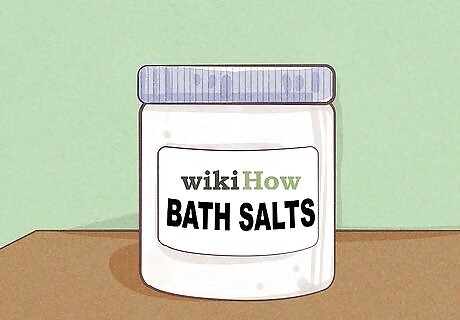
Choose your bath salts. You can buy or make your own bath salts. Most bath salts are made using Epsom salts or Dead Sea salts. You can also look for products that contain pink sea salt, Dendritic salt, or Icelandic Geothermal Brine. Your bath salts may be fine, grainy, or coarse depending on the texture you prefer. For a very simple bath salt, you can simply use dye and fragrance-free Epsom salts.
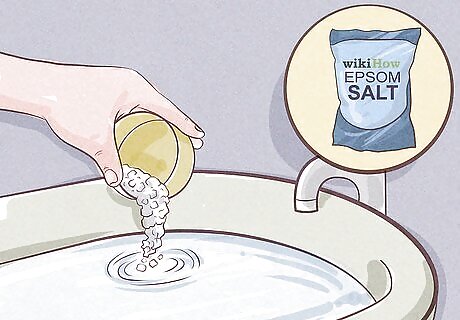
Fill the tub half full and add the bath salts. Put the plug in your bathtub and run hot water. Fill the tub halfway with water that's as hot as you like it and pour in about 1/2 cup (120 g) of prepared bath salts. For a stronger concentration, you can add more bath salts. For a therapy bath, consider using 1 to 2 cups (240 to 480 g) of Epsom salts. The high levels of magnesium in the salts can reduce muscle ache.
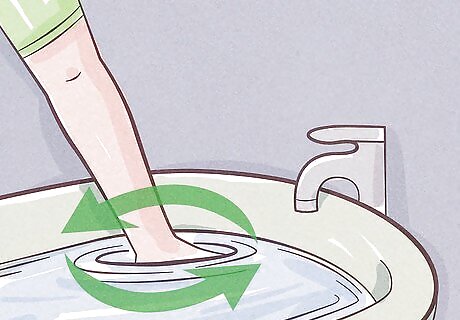
Swirl the bath salts in the water. Use your hands to swirl the water in the tub so the salts dissolve. Fine grained bath salts will dissolve faster than coarse grained bath salts.
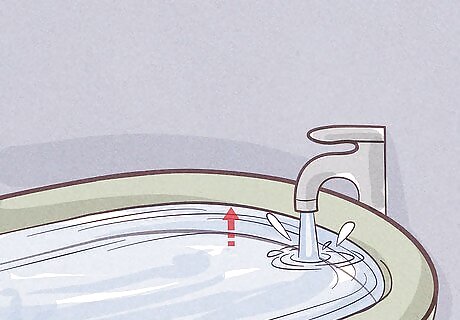
Fill the tub with more water. Turn the hot water back on and fill the tub as high as you like. Dip your hands in the water to check the temperature. The water should be as comfortably hot as you can make it.
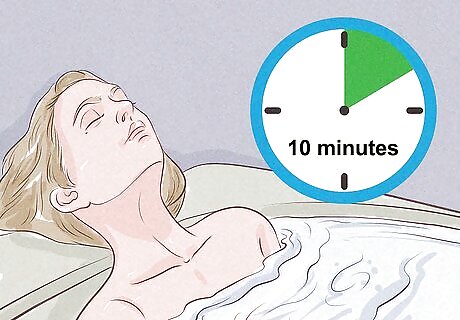
Soak in the tub for at least 10 minutes. Get into the tub and breathe in the hot steam as you soak. To get the full benefits of the bath salts, try to soak for at least 10 minutes. Continue to soak as long as you like before draining the tub. Ask your doctor about how often you can use bath salts, especially if you have a medical condition. If your bath salts contain oils, use caution when getting out of the tub. The oils may make the bottom of the tub slippery.
Enhancing Your Experience
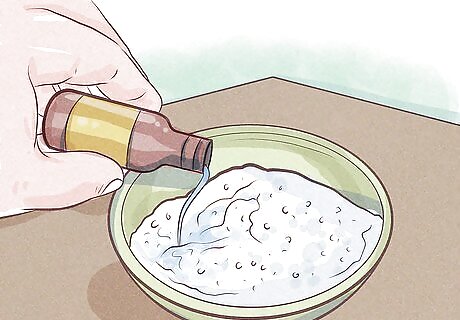
Add color to the bath salts. If you want to add a burst of color to your bath, mix in a few drops of liquid or gel food coloring into 1 1/2 cups (360 g) of the bath salts. Add just a few drops so you don't dissolve the salt and continue to mix in more food coloring until you get the shade you're looking for. If you're mixing different colors of bath salts, keep them in separate containers since the colors may bleed into each other as the bath salts are stored.
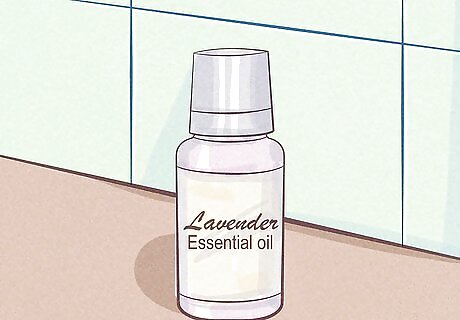
Include essential oils, if desired. If you're using Epsom or Dead Sea bath salts that don't include any fragrances, add 6 to 12 drops of your favorite essential oil for every 1 1/2 cups (360 g) of bath salts. Since essential oils are highly concentrated, start with a smaller amount and add more as you need. Use just one type of essential oil or make a combination to treat your skin or enhance your mood. For example, for an energizing bath, include grapefruit, bergamot, and peppermint essential oils. For example, if you have acne-prone skin, add a few drops of tea tree, geranium, or lavender essential oil.
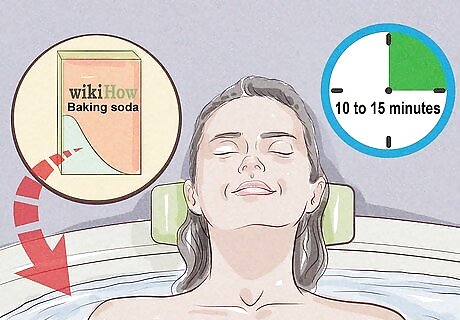
Add baking soda for softer skin. Sprinkle 1/4 to 1 cup (45 to 180 g) of baking soda (sodium bicarbonate) to the running water in your tub. The baking soda should dissolve quickly. Soak in the tub for 20 to 30 minutes and use caution when getting out of the tub since baking soda can leave a slippery residue. Baking soda can soften your skin and remove chlorine from the bath water.
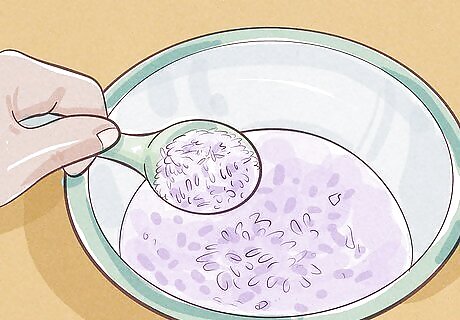
Mix dried herbs into the bath salts. Measure 2 tablespoons (3 to 4 g) of your favorite dried herbs and add them to 3 cups (720 g) of your bath salts. Include dried herbs to improve your mood, add fragrance to the bath, or treat skin conditions. Mix one of these popular dried herbs into your bath salts: Lavender Mint Rosemary Chamomile Rose petals
Using Bath Salts in Different Ways
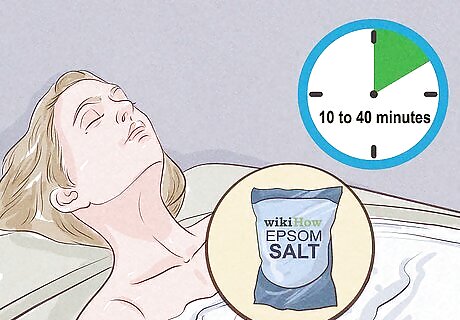
Soak in a detoxifying bath. For a cleansing bath that can remove toxins from your body, soak in Epsom salts. Epsom salts contain magnesium and sulfate that remove heavy metals from the body and speed up the skin's recovery time. Dissolve 1 to 3 cups (240 to 720 g) of Epsom salts in a hot bath and soak in it for 10 to 40 minutes.
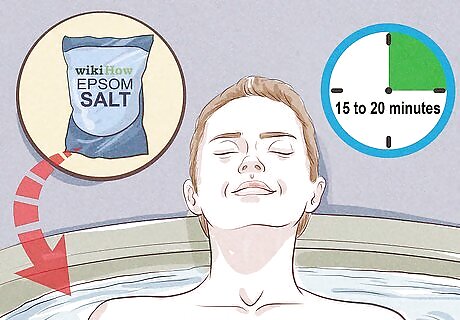
Dissolve Epsom salts to treat muscle aches. Pour up to 2 cups of (480 g) of Epsom salts into a hot bath and swirl the water to dissolve the salt. Soak your sore muscles in the water for at least 15 to 20 minutes. The magnesium in the Epsom salts can relax your muscles. Consider adding up to 15 drops of essential oils known for soothing muscles. These include wintergreen, basil, bergamot, rosemary, lavender, peppermint, and Douglas fir.
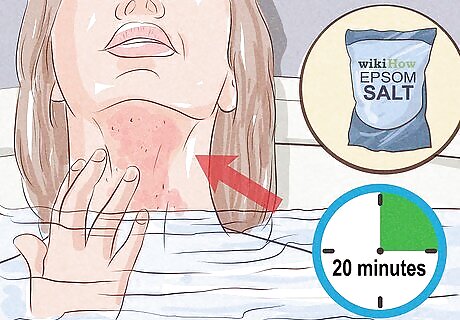
Reduce inflammation and irritation of the skin. If you're dealing with skin issues like psoriasis, rashes, or eczema, soak in an Epsom salt bath. The magnesium in the salts can reduce inflammation and relieve itching. Run a full bath and dissolve 1 to 3 cups (240 to 720 g) of Epsom salts in it. Soak the irritated skin for at least 20 minutes to get the full benefits. Always moisturize your skin after getting out of the bath to keep your skin hydrated. Epsom salts can also help with hemorrhoid-related inflammation.
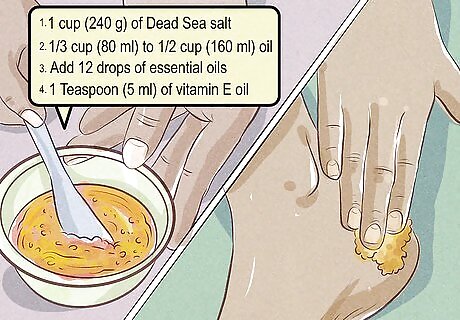
Mix the salts into a shower scrub to exfoliate dead skin. Measure 1 cup (240 g) of Dead Sea salt into a bowl and stir in 1/3 cup (80 ml) to 1/2 cup (160 ml) of your favorite oil (such as sweet almond, coconut, grapeseed, or olive). Add 12 drops of essential oils and 1 teaspoon (5 ml) of vitamin E oil. Stir the mixture into a thick paste that you can scrub over your skin when you shower. Just rinse off the mixture and enjoy softer skin. You can store the shower scrub in an airtight plastic container. Ensure that water doesn't get into the container when you're opening it in the shower or you may introduce bacteria into the scrub.
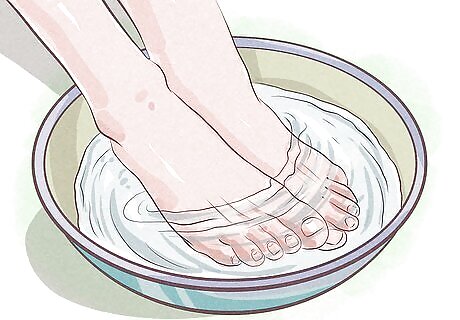
Make a foot bath to soothe achy feet. If you don't have the time or space to run a full bath, fill a large basin three-quarters full of hot water. Stir in 1/2 cup (120 g) of Epsom salts until they're dissolved. Sit down and place your feet into the foot bath. Soak your feet for 10 minutes. Avoid soaking your feet in bath salts if you have diabetes. Soaking your feet can dry out your feet and cause cracking that may lead to infection.




















Comments
0 comment